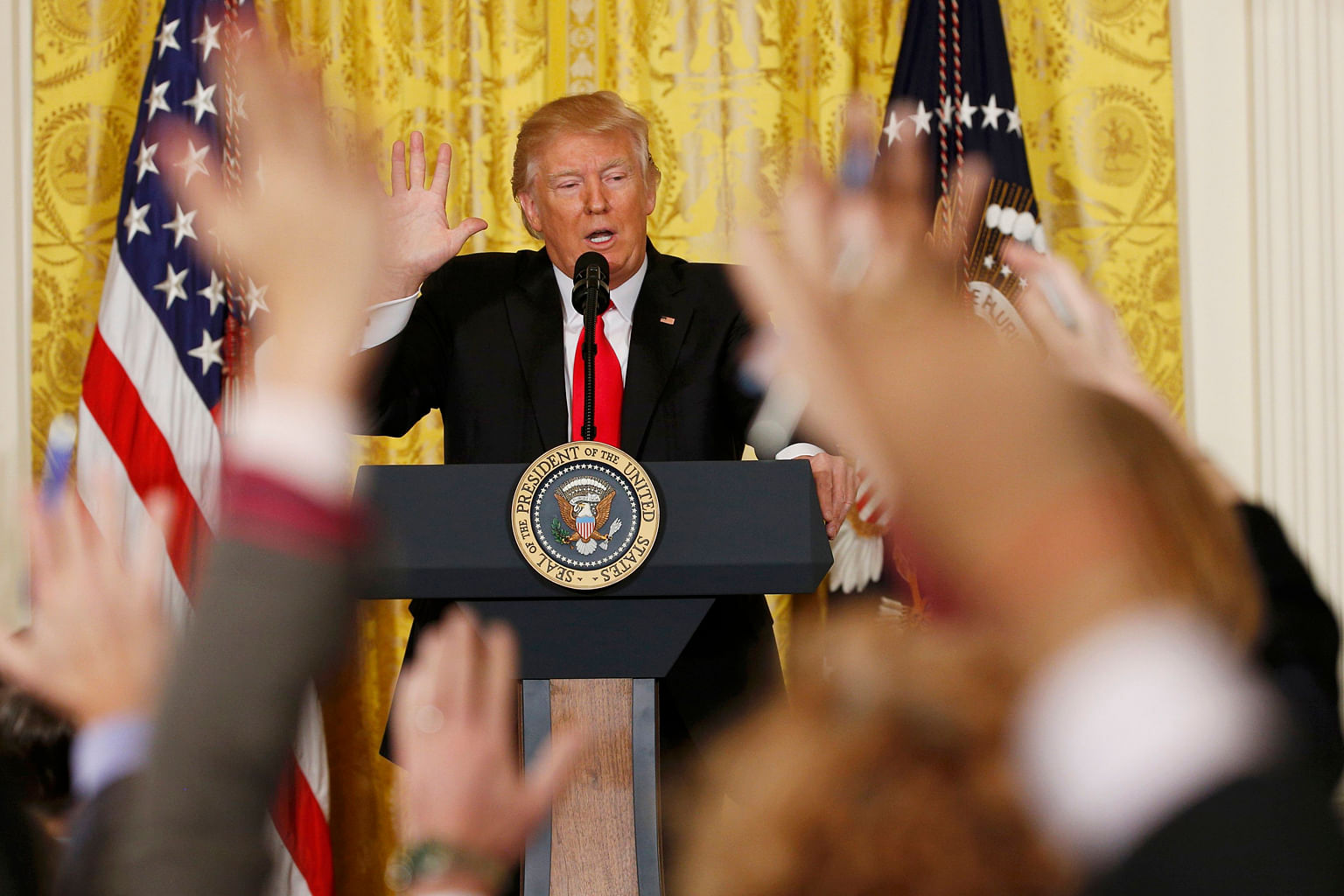Let's get things straight.
United States President Donald Trump has signed a few executive orders. He's ruffled a lot of feathers and he's got more than a few people hot under the collar.
But he hasn't exactly done much yet to warrant the support of the market. He hasn't fleshed out his plans in dollars and cents. And he hasn't put any meat on the bones of his big-picture ideas to revive the US economy. Nevertheless, the market has given him more than the benefit of the doubt.
But now the knives are out. The bears have awoken from their hibernation. The doom-mongers have got their voices back. All that it took for severe cynicism to surface was four months of strong gains by the Dow Jones Industrial Average index.
And now the naysayers are saying that it's time for a correction. Some are even predicting a crash.
They may well be right. But they could easily be wrong. They were wrong about Grexit. They were very wrong about Brexit. What makes them so sure that they are right about the "Trump rally"?

It could be the almost relentless rise of the US markets following Mr Trump's election success last November that has given traders a touch of vertigo.
Actually, some had predicted that the market would fall, if Mr Trump was elected. But since his election triumph, the US benchmark index has gained around 16 per cent.
The remarkable ascent in four months is nearly twice the average gains that investors would normally expect from an entire year of investing. It is, therefore, understandable why some might be concerned that the market has got ahead of itself.
There is another reason why some might be worried. Mr Trump has promised to "Make America Great Again". The lofty promise will have to be fulfilled if it is to mean anything to his loyal followers.
But there might be a problem. Presidents propose and Congress disposes. So Mr Trump is unlikely to have everything his own way.
His budget will have to pass the scrutiny of US lawmakers. There is no guarantee that will happen because his plans are ambitious.
He wants to spend US$1 trillion (S$1.41 trillion) on improving US infrastructure. He wants to increase defence spending. He wants to build a wall along the Mexico border. He wants to cut corporation tax. He wants to cut personal income tax.
The "wants" could amount to nothing, unless US politicians agree that the Trump budget will not heap more debt onto an already heavily-indebted US.
Mr Trump's elaborate spending plans are giving the Federal Reserve reasons to worry. It was not that long ago when the market doubted that the Fed would be able to raise interest rates at all this year.
But now it reckons the cost of borrowing could rise three times, if not four, in 2017.
A rate hike could take some of the gloss from shares, especially for income investors. They have been some of the stock market's staunchest supporters.
In a low interest rate environment, they went in search of high-yielding shares at a time when savings accounts were paying virtually nothing. Their departure could puncture a highly-rated market that could in turn precipitate a mass exodus.
There is also the small matter of Mr Trump's election mantra, which is to "Put America First". The implication is that everyone would come second. That could initiate a bitter trade war with some of the US' important trading partners.
Import tariffs are the last thing the world needs, just as the green shoots of a global recovery are appearing.
It is unclear which countries could be affected. But that has been the hallmark of Mr Trump - confusion, obfuscation and mystification. But if he gets his way, tariffs on imports could stoke inflation, which in turn could trigger higher US interest rates.
It has to be said that much, if not most of this, is conjecture. They are the types of scenario that economists love to explore. But economics is not an exact science.
What is likely, though, is years of stock market volatility. But as long-term investors, we need to rise above the noise. But that will not be easy unless we have a very clear idea about the stocks we want to own.
Every company has an intrinsic value. It could be the book value. It could be the discounted cash flow.
The upshot is that to be able to value a business, its future must be predictable. That should be the basis of all investing.
Warren Buffett once said: "Price is what you pay. Value is what you get." So, our job as investors is to decide if an investment will be more valuable in a decade's time. If it is, then any time can be a good time to invest.
- This is a regular column on stocks and investing by Mr David Kuo, chief executive of The Motley Fool Singapore.
